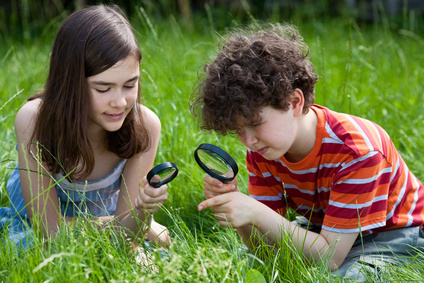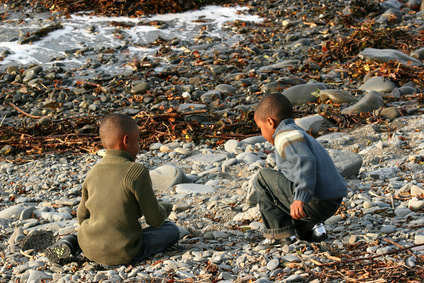Parents, Are You Involved or Over-Involved?
I recently read an article (Welcome to the Age of Overparenting) in which the reader was asked to recall their happiest childhood moments. Think about those moments. How many of them included adults? Interestingly, the majority of our  happy childhood moments did not include adults. They were not scheduled or orchestrated by our parents; they did not involve a coach; they were not part of an organized group outing. Most of our happiest childhood moments involved spontaneous activities engaged in during our free time. Notice, these happy moments involved:
happy childhood moments did not include adults. They were not scheduled or orchestrated by our parents; they did not involve a coach; they were not part of an organized group outing. Most of our happiest childhood moments involved spontaneous activities engaged in during our free time. Notice, these happy moments involved:
 happy childhood moments did not include adults. They were not scheduled or orchestrated by our parents; they did not involve a coach; they were not part of an organized group outing. Most of our happiest childhood moments involved spontaneous activities engaged in during our free time. Notice, these happy moments involved:
happy childhood moments did not include adults. They were not scheduled or orchestrated by our parents; they did not involve a coach; they were not part of an organized group outing. Most of our happiest childhood moments involved spontaneous activities engaged in during our free time. Notice, these happy moments involved: 1. Unstructured time in which we were free to do whatever we wanted. In fact, these times may have started out with our feeling bored and looking for something to do.
2. Unsupervised time. These happy moments were times of our own making, not the making of an adult. The times and the experiences were completely our own, not our parents’.
In today’s world, parents carefully orchestrate their child’s involvement in a variety of activities in order to provide them a multitude of experiences that will “enhance their college opportunities and lead to a more fulfilling life.” But, when do our children enjoy unstructured, unsupervised time of their own making? After all, those times became some of our most enjoyable memories and learning experiences. While we do not want to abandon our children or leave them unsupervised in dangerous situations, we might need to allow them some freedom to explore the world without our constant protection, direction, and involvement. Maybe we need to park our helicopters in the yard and stop hovering 24/7. Why?
- Micromanaging undermines self-esteem. We cannot rescue our child’s
 self-esteem by jumping in to save them from a difficult task as soon as we see them begin to struggle. We hinder their self-esteem by constantly watching over their shoulder and praising them for every little problem they solve, whether it was difficult or not. That type of micromanaging backfires in the development of self-esteem. To develop a strong self-image, children need to work hard and experience the benefits of that hard work. They need to experience failure and work through it. They need to pick themselves up and realize that they can go on in spite of the momentary setbacks we mislabel as failure. When parents recognize and acknowledge their child’s hard work, self-esteem improves. When parents acknowledge that their child worked hard in spite of setbacks, children develop persistence…and persistence leads to success. Success leads to self-esteem.
self-esteem by jumping in to save them from a difficult task as soon as we see them begin to struggle. We hinder their self-esteem by constantly watching over their shoulder and praising them for every little problem they solve, whether it was difficult or not. That type of micromanaging backfires in the development of self-esteem. To develop a strong self-image, children need to work hard and experience the benefits of that hard work. They need to experience failure and work through it. They need to pick themselves up and realize that they can go on in spite of the momentary setbacks we mislabel as failure. When parents recognize and acknowledge their child’s hard work, self-esteem improves. When parents acknowledge that their child worked hard in spite of setbacks, children develop persistence…and persistence leads to success. Success leads to self-esteem. - Free, unstructured, and unsupervised play allows children the opportunity to learn how to negotiate with others and how to control their emotions. Children learn that they cannot always get their way. They will not always have adults to negotiate for them. Parents will not always be available to protect them from being overlooked or spoken to harshly. Parents will not always be available to resolve the conflicts that arise. Unstructured play without parental involvement allows children the opportunity to learn to compromise, negotiate, resolve conflicts, and stick up for themselves. Children who engage in unstructured, unsupervised play learn how to be independent.
- Free, unstructured time also allows children to create their own fun. They learn to manage their own time and manufacture their own activities. One study actually suggested that children at a local playground were 45 percent less active when a parent was present. They engaged in less physical play, taking away the opportunity for natural exercise, exploration, and typical growth and development. On the other hand, as children devise their own games and orchestrate their own activities, the activity becomes their own. They unwittingly take more pride in the it and engage in that activity more vigorously. The end result is healthy exercise, maturing social skills, growing self-esteem, and a positive memory that will last a lifetime.
One of the most difficult tasks parent face today is allowing their child the opportunity to engage the world on their own. As children engage the world on their own, they will experience hurt feelings; they will struggle to resolve relational conflict; they will even engage in some risky activities and go places we do not know about. But, as they have these rich experiences, they will become more independent. They will grow more confident. They will develop and mature. When they go to college, they will have a better sense of how to manage their time and resist the pressures inherent in that transition. As adults, they will have the happy memories of childhood experiences they call their own…completely their own. They will have become mature, responsible adults.